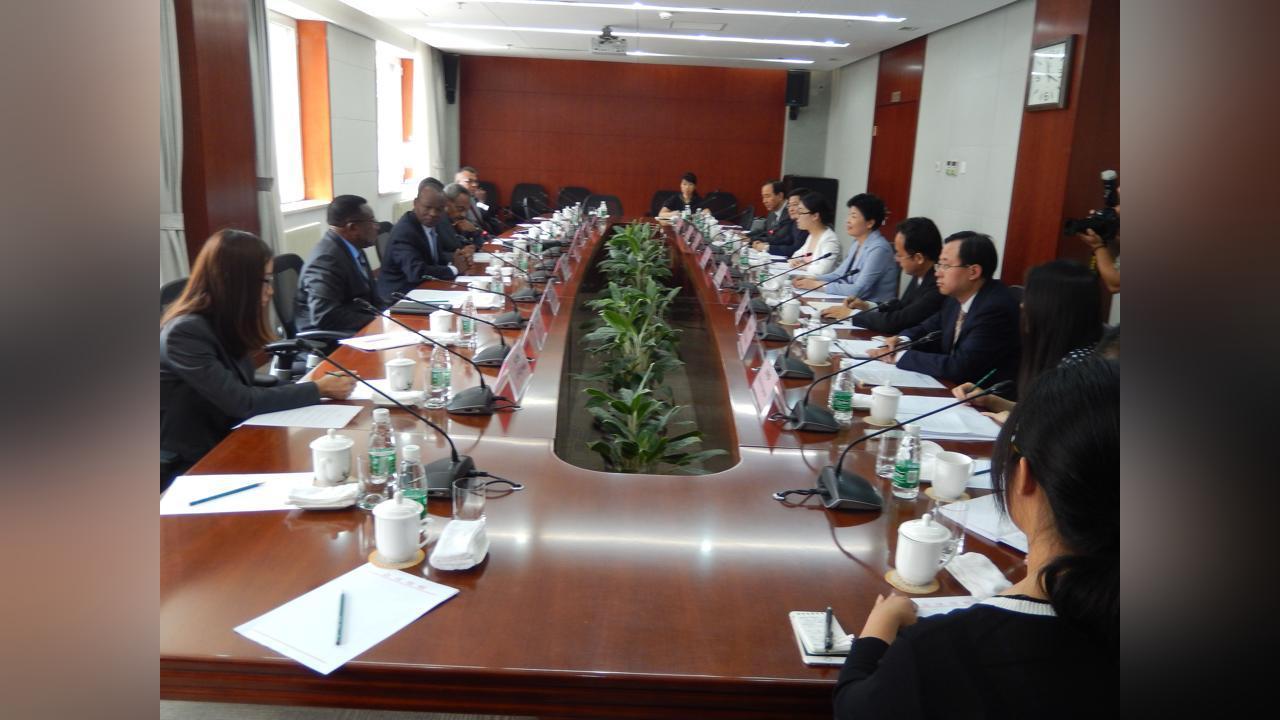write William Hatungimana, Haruka Nagao and Rigao Liu
Africa-Press – Lesotho. Across the continent, camps are beginning to form about whether you think China is a positive or negative influence in Africa.
There is no shortage of opinions about China’s influence on Africa. The proponents of China emphasize China’s positive economic contribution to Africa, while the cynics amplify the threat of neocolonialism and claim that China is indebting and exploiting African countries.
While we frequently hear about what China is doing in Africa at the macro level, we rarely hear about what citizens of African countries think of China. Africa has many countries with a diverse population of varying opinions and political outlooks. Such diversity is also reflected in how people respond to China’s increasing presence on the continent.
Do citizens of African countries like China?
It depends. To say that China is winning or not winning the hearts of people across the entire continent is deterministic and ignores the diversity and agency of the populace. The perception of China’s presence in Africa is mixed. China’s infrastructure investment attracts favourable views, as does its policy of non-interference and mutual economic benefits. However, China’s involvement in the mining industry draws more criticism. China’s non-interference approach and relationship with dictators have further invited criticism that China undermines democracy.
One of many factors that drive the diversity in views toward China is partisanship. A recently published study analysed the Afrobarometer survey data across 33 African countries and found that opposition party supporters are more critical of China than incumbent party supporters. Critics from opposition parties are mainly driven by their ambition to govern, but they also hold the incumbent party accountable. Political elites and people in Africa have agency, and they are driven by their political position instead of China’s interests. Although over 70 per cent of the survey respondents expressed positive views of China, the results shed light on critical voices.
This partisan divide stems from the mode of China’s bilateral engagement. The Chinese government usually builds a favourable relationship with an incumbent party. When China provides aid to a country, the ruling elites express favourability toward China, sending a signal to their party supporters.
This can make both opposition leaders and their supporters critical of China and its involvement with the party in power. In Namibia, the South West Africa People’s Organization (SWAPO) has close ties with China, and the ruling elites are criticized for pursuing their personal benefit at the expense of the people. The presence of critical opposition party supporters indicates subversion of the government’s pro-China position.
Roles of opposition parties
However, the critique from the opposition party needs to be taken with a grain of salt. Opposition parties also have their own interests. This is called office-seeking behaviour. The main goal of political parties is to win and control the government. The opposition parties may criticize China out of concern that ruling elites benefit from China and stay in power. In such a case, the opposition parties’ goal is not to terminate the exploitative relationship
with China but to gain votes and win an incumbent status. For example, in Zambia, when Michael Sata was the leader of the opposition party Patriotic Front (PF), he threatened to deport Chinese investors. After winning the 2011 elections, Sata was more willing to work with China.
At the same time, opposition parties and citizenry can also hold incumbent parties accountable. Opposition parties are critical in checking the incumbent government. The leading opposition party in Ghana, the New Patriotic Party (NPP), was critical of the ruling party National Democratic Congress’s (NDC) negotiation processes for China’s three-billion-dollar loan in 2013. The loan was expected to come with conditions for Ghana to provide China with oil at a low price and for Chinese companies to contract infrastructural projects. The NPP’s critical views toward the loan agreement gained public support, and the loan payment was stalled. The party politics have the potential to enhance transparency in making bilateral negotiations with China to mitigate the risks of unfair contracts and exploitations.
The mode of China’s bilateral engagement that favours incumbent parties over opposition parties demands greater attention rather than the volume of such engagement. Most importantly, the study points to the importance of considering diverse individual perceptions within each country, as well as the agency of political elites and citizens in African countries. African people and political elites have agency, and they view China through their own interests.
LSE
For More News And Analysis About Lesotho Follow Africa-Press






